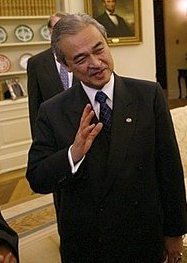|
Sedition Act (1861)
Sedition Act may refer to: *Alien and Sedition Acts, including the Sedition Act of 1798, laws passed by the United States Congress *Sedition Act 1661, an English statute that largely relates to treason *Sedition Act of 1918, also passed by the United States Congress *Sedition Act 1948, a law in Malaysia *Sedition Act (Singapore), a law in Singapore See also * List of short titles {{disambig ... [...More Info...] [...Related Items...] OR: [Wikipedia] [Google] [Baidu] |
Alien And Sedition Acts
The Alien and Sedition Acts were a set of four laws enacted in 1798 that applied restrictions to immigration and speech in the United States. The Naturalization Act increased the requirements to seek citizenship, the Alien Friends Act allowed the president to imprison and deport non-citizens, the Alien Enemies Act gave the president additional powers to detain non-citizens during times of war, and the Sedition Act criminalized false and malicious statements about the federal government. The Alien Friends Act and the Sedition Act expired after a set number of years, and the Naturalization Act was repealed in 1802. The Alien Enemies Act is still in effect. The Alien and Sedition Acts were controversial. They were supported by the Federalist Party, and supporters argued that the bills strengthened national security during the Quasi-War, an undeclared naval war with France from 1798 to 1800. The acts were denounced by Democratic-Republicans as suppression of voters and violation of ... [...More Info...] [...Related Items...] OR: [Wikipedia] [Google] [Baidu] |
Sedition Act 1661
The Sedition Act 1661 (13 Car 2 St 1 c 1) was an Act of the Parliament of England, although it was extended to Scotland in 1708. Passed shortly after the Restoration of Charles II, it is no longer in force, but some of its provisions continue to survive today in the Treason Act 1695 and the Treason Felony Act 1848. One clause which was included in the Treason Act 1695 was later adapted for the United States Constitution. Two witnesses rule The most important feature of the Act was that it reintroduced a significant new rule of evidence in high treason trials, namely that nobody could be convicted of treason except by the evidence of "two lawful and credible witnesses upon oath ... brought in person before him or them face to face", or if he confessed "willingly without violence". (This rule had previously been enacted in section 22 of the Treason Act 1547, and again in section XI of the Treason Act 1554, which however differed from the other versions by only requiring t ... [...More Info...] [...Related Items...] OR: [Wikipedia] [Google] [Baidu] |
Sedition Act Of 1918
The Sedition Act of 1918 () was an Act of the United States Congress that extended the Espionage Act of 1917 to cover a broader range of offenses, notably speech and the expression of opinion that cast the government or the war effort in a negative light or interfered with the sale of government bonds. It forbade the use of "disloyal, profane, scurrilous, or abusive language" about the United States government, its flag, or its armed forces or that caused others to view the American government or its institutions with contempt. Those convicted under the act generally received sentences of imprisonment for five to 20 years. The act also allowed the Postmaster General to refuse to deliver mail that met those same standards for punishable speech or opinion. It applied only to times "when the United States is in war." The U.S. was in a declared state of war at the time of passage, the First World War. The law was repealed on December 13, 1920.Stone, 230 Though the legislation ... [...More Info...] [...Related Items...] OR: [Wikipedia] [Google] [Baidu] |
Sedition Act 1948
The Sedition Act 1948 ( ms, Akta Hasutan 1948) in Malaysia is a law prohibiting discourse deemed as seditious. The act was originally enacted by the colonial authorities of British Malaya in 1948 to contain the local communist insurgence. The act criminalises speech with "seditious tendency", including that which would "bring into hatred or contempt or to excite disaffection against" the government or engender "feelings of ill-will and hostility between different races". The meaning of "seditious tendency" is defined in section 3 of thSedition Act 1948and in substance it is similar to the English common law definition of sedition, with modifications to suit local circumstances. The Malaysian definition includes the questioning of certain portions of the Constitution of Malaysia, namely those pertaining to the Malaysian social contract, such as Article 153, which deals with special rights for the bumiputra ( Malays and other indigenous peoples, who comprise over half the Malaysian ... [...More Info...] [...Related Items...] OR: [Wikipedia] [Google] [Baidu] |
Sedition Act (Singapore)
The Sedition Act 1948 was a Singaporean sources of Singapore law#Statutes, statute law which prohibited sedition, seditious acts and speech; and the printing, publication, sale, distribution, reproduction and importation of seditious publications. The essential ingredient of any offence under the Act was the finding of a "seditious tendency", and the intention of the offender is irrelevant. The Act also listed several examples of what is not a seditious tendency, and provides defences for accused persons in a limited number of situations. A notable feature of the Sedition Act was that in addition to punishing actions that tend to undermine the administration of government, the Act also criminalized actions which promoted feelings of ill-will or hostility between different races or classes of the population. In contrast to arrests and prosecutions in the 1950s and 1960s which involved allegations of fomenting disaffection against the government, those in the 21st century such as the ... [...More Info...] [...Related Items...] OR: [Wikipedia] [Google] [Baidu] |


